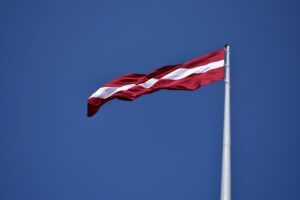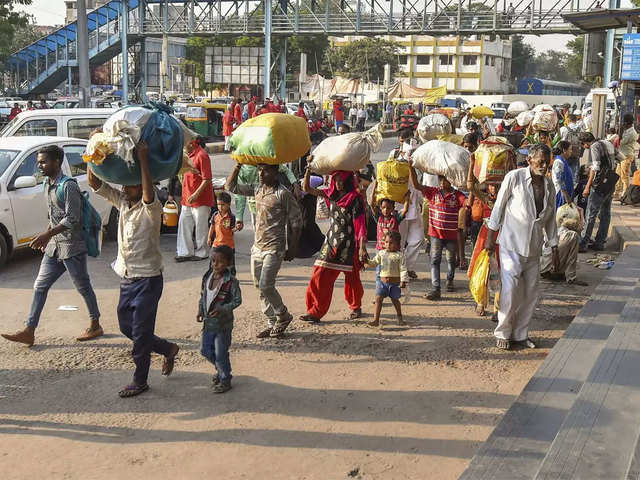
Apr 16, 2020 | News
The ICJ today called on the Indian Government to take effective measures to mitigate the disproportionate impact of the lockdown on internal migrant workers and guarantee the right to a minimum adequate standard of living to all, in line with India’s international obligations and Indian law.
The call comes just as India announced its second lockdown period starting April 15, 2020, extending the prior 21-day lockdown period, 2020, to 40 days. On March 29, 2020, the Government had also issued a circular prohibiting movement of migrant workers and an order stating that migrant workers be given food and shelter. It banned evictions of all migrant workers for a month.
“While the measures taken by the Government so far are important, they have proved inadequate. The Government’s efforts need to be targeted towards internal migrant workers and respond to the multiple layers of discrimination and risks they face,” said Maitreyi Gupta, ICJ India International Legal Advisor.
The announcement of the second lockdown has led to thousands of migrant workers in Mumbai and Surat protesting this decision and demanding the right to return home. It came soon after more than 500,000 migrant workers and their families attempted to travel distances of hundreds of kilometers on foot to return to their homes after the first lockdown period was announced on March 24, 2020. This massive internal displacement has led to the deaths of 22 internal migrant workers and their family members, including seven children.
The ICJ called on the Indian authorities to ensure that any restrictions on freedom of movement of migrant workers, protected under international law, is strictly necessary and proportionate and does not result in other human rights violations.
The ICJ is particularly concerned by civil society and media reports indicating that some internal migrants have not eaten for several days and are at the brink of starvation, while others have started rationing their meals to one meal a day.
“The situation of internal migrant workers in India is wholly unacceptable. If their urgent needs are not addressed in a way that respects their human rights, it will only serve to compound the current crisis,” said Frederick Rawski, ICJ Asia-Pacific Director. “We call on the Indian Government to take all necessary measures to bring an end to this deplorable situation.”
The UN High Commissioner for Human Rights Michelle Bachelet on April 2, 2020 also expressed concern at the “plight of India’s internal migrants” and said “more needs to be done as the human tragedy continues to unfold before our eyes”.”
The UN Committee on Economic, Social and Cultural Rights has already called on States to implement “targeted programmes to protect the jobs, wages and benefits of all workers,” and take measures to ensure the “extraordinary mobilization of resources to deal with the COVID-19 pandemic”.
The ICJ urged India to take to all necessary measures to fulfill its obligations to protect the right to adequate standard of living of all internal migrant workers and other vulnerable populations. This includes ensuring access to quality health systems and facilities; minimum essential food; adequate shelter; sanitation and potable water; and timely information.
To download the statement with background information, click here.
Contact
Maitreyi Gupta, ICJ India Legal Adviser, t: +91 77 560 28369 e: maitreyi.gupta(a)icj.org
Frederick Rawski, ICJ Asia-Pacific Director, t: +66 64 478 1121; e: frederick.rawski(a)icj.org
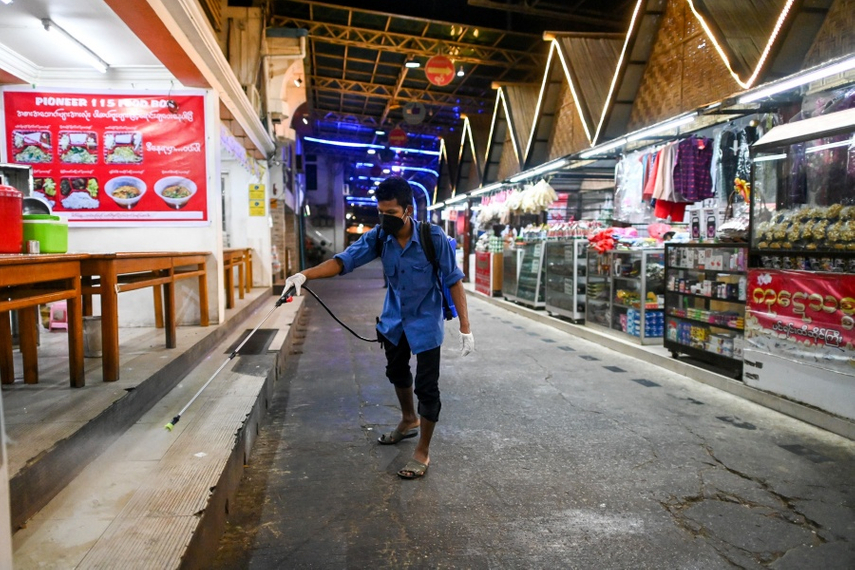
Apr 10, 2020 | News
The ICJ today called upon the Myanmar government to ensure that everyone in the country, particularly those from communities affected by conflict, has access to critical information about COVID-19. This call includes putting an immediate end to restrictions on internet access in Rakhine and Chin States.
The ICJ said that there must not be undue restrictions on the right of people to seek and impart such information, in line with international law and standards protecting the right to freedom of expression and information.
“Access to information is absolutely essential for the protection of communities, especially their right to health during the COVID-19 outbreak,” said Frederick Rawski, ICJ Director for Asia and the Pacific. “This is especially true in areas of Myanmar affected by conflict. The wholesale blocking of internet access in Rakhine and Chin States, including access to websites of popular ethnic media outlets, has no justifiable basis in international law and will only serve to undermine efforts to mitigate the spread of the virus.”
On 26 March 2020, the Minister of Transport and Communications stated in a media interview that despite the COVID-19 pandemic, the internet shutdown in Rakhine and Chin States would not be lifted until hate speech, misinformation and the conflict with the Arakan Army are addressed. The Minister’s statement appears to defy the UN Secretary-General’s appeal for a global ceasefire as well as the respective statements of members of Myanmar’s diplomatic community and of several ethnic armed organizations, including the Arakan Army, to cease hostilities in light of the COVID-19 pandemic. On 9 April 2020, the UN Special Rapporteur on Myanmar called for the same.
Instead, on 30 March 2020, pursuant to section 77 of the Telecommunications Law, the Ministry of Transport and Communications (MoTC) ordered major telecommunications networks to take down hundreds of websites on the dubious ground of containing misinformation. The MoTC did not disclose the full list of websites ordered to be blocked as well as the factual and legal basis that justified issuing the order. Under Section 77, the MoTC can direct a telecommunications provider to suspend services in the event of an “emergency situation.” It is not clear whether the misinformation relates to COVID-19 or if the pandemic is the pretext for the order.
As of 1 April 2020, media outlets of the Rakhine and Karen ethnic communities were among the websites to which access was blocked from major telecommunications providers. Access to Voice of Myanmar’s website, whose editor-in-chief had faced charges under Myanmar’s Counter-Terrorism Law until 9 April 2020 for publishing an interview with the Arakan Army, was also blocked.
The ICJ has previously expressed concern at the Myanmar Government’s use of the Telecommunications Act to justify an internet shutdown in the context of the conflict in Rakhine State. This practice does not comply with human rights law and standards. The Act itself is fundamentally flawed and must be amended. Among other defects, the Act does not define the scope of an “emergency situation.”
“Keeping these overbroad restrictions in place in the midst of the COVID-19 pandemic puts the government in violation of international law. It is also counterproductive to the goal of stopping the spread of the virus and minimizing its impact on the country’s most vulnerable populations,” said Rawski.
Download the statement in Burmese here.
Contact:
Frederick Rawski, ICJ Asia-Pacific Regional Director, e: Frederick.rawski(a)icj.org
Related work:
Event: ICJ hosts workshop on fair trial rights for Myanmar’s ethnic media
Report: Curtailing the Right to Freedom of Expression and Information in Myanmar
Statement: States must respect and protect rights in fighting COVID-19 misinformation
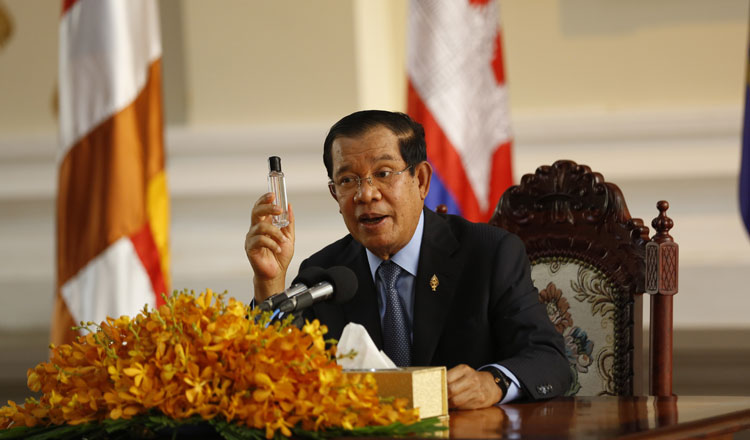
Apr 8, 2020 | News
The ICJ today warned that Cambodia’s draft Law on National Administration in the State of Emergency (“State of Emergency bill”) violates basic rule of law principles and human rights, and called on the Cambodian government to urgently withdraw or amend the bill in accordance with international human rights law and standards.
Last Friday, government spokesperson Phay Siphan explained that the government needed to bring a State of Emergency law in force to combat the COVID-19 outbreak as “Cambodia is a rule of law country”. The bill is now before the National Assembly and, if passed by the Assembly, will likely be considered in an extraordinary session convened by the Senate. The law will come into force once it has been signed by the King – or in his absence, the acting Head of State, Senate President Say Chhum.
“The Cambodian government has long abused the term “rule of law” to justify bringing into force laws or regulations that are then used to suppress free expression and target critics. This bill is no different,” said Frederick Rawski, ICJ’s Director for Asia and the Pacific.
“Any effective response to the COVID-19 outbreak must not only protect the rights to health and life, but be implemented in accordance with Cambodia’s human rights obligations and basic principles of the rule of law.”
Several serious shortcomings are evident in the State of Emergency bill, including:
- No delineation of a timeline for the imposition of a state of emergency, or criterial process for its termination. The bill provides vaguely that such declaration “may or may not be assigned a time limit. In the event that a state of emergency is declared without a clear time limit, such a state of emergency shall be terminated when the situation allows it” (article 3);
- Expansion of government powers to “ban or restrict” individuals’ “freedom of movement, association or of meetings of people” without any qualification to respect the rights to association and assembly in enforcing such measures (article 5);
- Expansion of government powers to “ban or restrict distribution of information that could scare the public, (cause) unrest, or that can negatively impact national security” and impose “measures to monitor, observe and gather information from all telecommunication mediums, using any means necessary” without any qualification to respect the rights to privacy, freedom of expression and information in enforcing such measures (article 5);
- Overbroad powers for the government to “put in place other measures that are deemed appropriate and necessary in response to the state of emergency” which can allow for significant State overreach (article 5);
- Severe penalties amounting to up to 10 years’ imprisonment of individuals and fines of up to 1 billion Riel (approx. USD 250,000) on legal entities for the vaguely defined offence of “obstructing (State) measures related to the state of emergency” where such obstruction “causes civil unrest or affects national security” (articles 7 to 9);
- No specific indication of which governmental authorities are empowered to take measures under the bill, raising concerns that measures could be taken by authorities or officials in an ad-hoc or arbitrary manner in violation of the principle of legality;
- No indication of sufficient judicial or administrative oversight of measures taken by State officials under the bill – The bill states that the government “must inform on a regular basis the National Assembly and the Senate on the measures it has taken during the state of emergency” and that the National Assembly and the Senate “can request for more necessary information” from the government (article 6) but does not clarify clear oversight procedures for accountability.
“The State of Emergency bill is a cynical ploy to further expand the nearly unconstrained powers of the Hun Sen government, and will no doubt be used to target critical comment on the government’s measures to tackle COVID-19,” said Rawski.
“If passed in its current form, this bill will reinforce the prevailing lack of accountability which defines the government in Cambodia. The government’s time would be better spent developing genuine public health policy responses to the crisis.”
Contact
Frederick Rawski, ICJ Asia Pacific Regional Director, e: frederick.rawski(a)icj.org
To download the statement with detailed background information, click here.
See also
ICJ report, ‘Dictating the Internet: Curtailing Free Expression, Opinion and Information Online in Southeast Asia’, December 2019
ICJ report, ‘Achieving Justice for Gross Human Rights Violations in Cambodia: Baseline Study’, October 2017
ICJ, ‘Cambodia: continued misuse of laws to unduly restrict human rights (UN statement)’, 26 September 2018
ICJ, ‘Misuse of law will do long-term damage to Cambodia’, 26 July 2018
ICJ, ‘Cambodia: deteriorating situation for human rights and rule of law (UN statement)’, 27 June 2018
ICJ, ‘Cambodia human rights crisis: the ICJ sends letter to UN Secretary General’, 23 October 2017
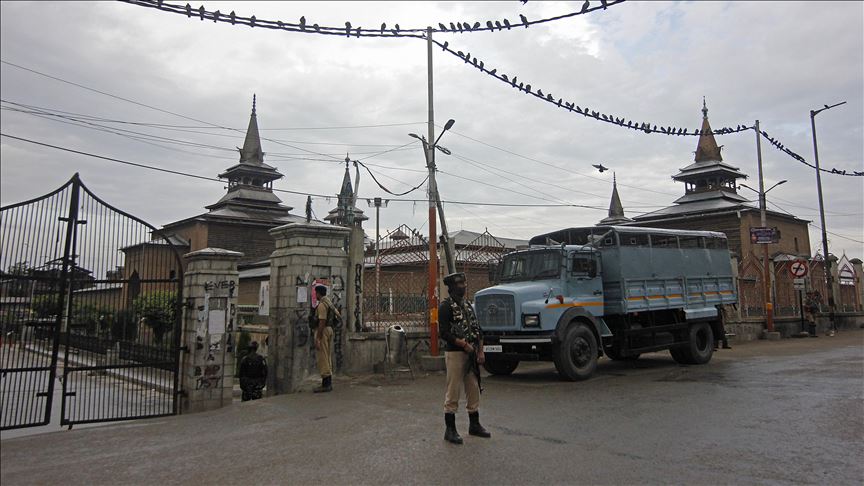
Apr 6, 2020 | News
ICJ has joined other NGOs in welcoming steps taken by Indian authorities to decongest prisons in an effort to contain the novel coronavirus (COVID-19). The Government should release all unjustly detained prisoners as a matter of priority.
The joint statement read as follows:
The fate of hundreds of arbitrarily detained Kashmiri prisoners hangs in the balance as the number of confirmed cases of coronavirus in India passes the 4,000 mark and many more are likely to remain undetected or unreported.
Inmates and prison staff, who live in confined spaces and in close proximity with others, remain extremely vulnerable to COVID-19. While the rest of the country is instructed to respect social isolation and hygiene rules, basic measures like hand washing – let alone physical distancing – are just not possible for prisoners.
Under international law, India has an obligation to ensure the physical and mental health and well-being of inmates. However, with an occupancy rate of over 117%, precarious hygienic conditions and inadequate health services, the overcrowded Indian prisons constitute the perfect environment for the spread of coronavirus.
In a bid to contain the spread of the disease among inmates and prison staff, the Supreme Court asked state governments on 23 March 2020 to take steps to decongest the country’s prison system by considering granting parole to those convicted or charged with offenses carrying jail terms of up to seven years.
The United Nations High Commissioner for Human Rights Michelle Bachelet also called on governments to “examine ways to release those particularly vulnerable to COVID-19, among them older detainees and those who are sick, as well as low-risk offenders.”
Various state governments in India have now begun releasing detainees. However, there is a concern that hundreds of Kashmiri youth, journalists, political leaders, human right defenders and others arbitrarily arrested in the course of 2019, including following the repeal of Article 370 of the Indian Constitution on 5 August 2019, will not be among those benefiting from the measure. Article 370 provided special status to Jammu & Kashmir.
Human rights groups and UN experts have repeatedly called for the release as a matter of priority of “those detained without sufficient legal basis, including political prisoners and others detained simply for expressing critical or dissenting views.”
Last month, the Ministry of Home Affairs revealed that 7,357 persons had been arrested in Jammu & Kashmir since 5 August 2019. While the majority have since been released, hundreds are still detained under sections 107 and 151 of the Criminal Procedure Code, the Unlawful Activities (Prevention) Act (UAPA), and the Public Security Act (PSA), a controversial law which allows the administrative detention of any individual for up to two years without charge or trial. Reportedly, many of those still detained are minors.
Many of those detained were transferred to prisons all across India, thousands of kilometers away from their homes, hampering their lawyers’ and relatives’ ability to visit them. Some of the families, often too poor to afford to travel, have been left with nothing but concerns over the physical and psychological well-being of their loved ones.
Mr. Miyan Abdul Qayoom, a human rights lawyer and President of the Jammu & Kashmir High Court Bar Association, was also cut off from his family and lawyer. Detained since 4 August 2019 in India’s Uttar Pradesh State, he was transferred to Tihar jail in New Delhi following a deterioration of his health. Mr. Qayoom, 70, suffers from diabetes, double vessel heart disease, and kidney problems.
Mr. Ghulam Mohammed Bhat was also transferred to a jail in Uttar Pradesh. In December 2019, he died thousands of kilometers away from his home at the age of 65 due to lack of medical care.
With the entire country in a lockdown and a ban on prison visits for the duration of the outbreak imposed, inmates are more isolated from the outside world than ever. In such a situation, prison authorities must ensure that alternative means of communication, such as videoconferencing, phone calls and emails, are allowed. However, this has not often been the case. Especially in Jammu & Kashmir, where full internet services are yet to be restored after a communication blackout imposed on the population on 5 August 2019, contacts between inmates and the outside world are even more limited.
- Amnesty International India
- Asian Forum for Human Rights and Development (FORUM-ASIA)
- CIVICUS: World Alliance for Citizen Participation
- International Commissions of Jurists (ICJ)
- International Federation for Human Rights (FIDH)
- World Organisation Against Torture (OMCT)
To download the statement with detailed information and key recommendations, click here.
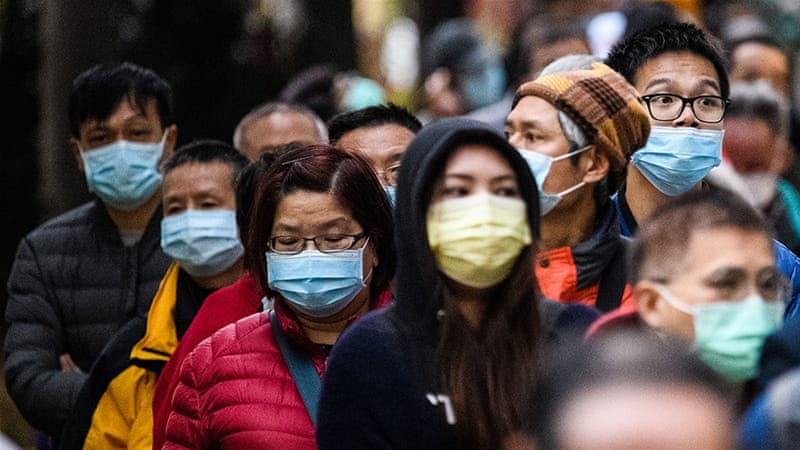
Apr 1, 2020 | News
The ICJ today called on States in Southeast Asia to respect and protect human rights online and offline, in accordance with their obligations under international law, as they take steps to stop the spread of COVID-19.
It urged States to ensure that avoiding adverse impacts on the exercise of the rights to freedom of expression, opinion, information and privacy are front and center when implementing measures to counter misinformation about the virus.
“This is a health emergency, unprecedented in modern times, that calls for urgent, targeted and effective responses by the State including measures to curtail false or misleading information about the spread of COVID-19,” said Frederick Rawski, ICJ’s Director for Asia and the Pacific.
“However, such measures must be implemented in accordance with rule of law principles, and their enforcement should protect the rights to health and life just as much as the rights to free expression, opinion, information and privacy.”
Governments in Southeast Asia have introduced and begun to enforce severe measures to control information online about the virus. This raises concerns about the potential for State over-reach in light of how Southeast Asian governments have historically enforced laws to curtail rights and censor content online in violation of international law. This trend was mapped out in its 2019 regional report.
The ICJ’s concerns has already been substantiated by recent actions taken by law enforcement authorities in some countries in the region. Arrests and detentions for online expression, in some cases without a warrant, have been reported in the Philippines, Malaysia, Indonesia, Cambodia, Vietnam and Thailand. Some of the laws in these countries which the ICJ had identified in its report as non-compliant with international human rights standards have been mis-used to arrest, detain and charge individuals accused of spreading false information online on the COVID-19 virus.
Legal provisions pursuant to which these arrests have been made carry significant criminal penalties including imprisonment terms and heavy fines – in some cases for merely expressing criticism of government measures on social media, such as complaints about inadequate screening measures or a lack of government preparedness.
“We urge governments not to repeat the mistakes of the past. The mere perception that the law is being used to suppress speech will only undermine the credibility of State institutions at a time when maintaining public trust is crucial,” said Rawski.
“Misinformation can be curtailed using less intrusive means than arrests, detentions and disproportionately onerous fines or imprisonment terms.”
To download the full statement with background information, click here.
Contact
Frederick Rawski, ICJ Asia Pacific Regional Director, e: frederick.rawski(a)icj.org
See also
ICJ, ‘Southeast Asia: ICJ launches report on increasing restrictions on online speech’, 11 December 2019






